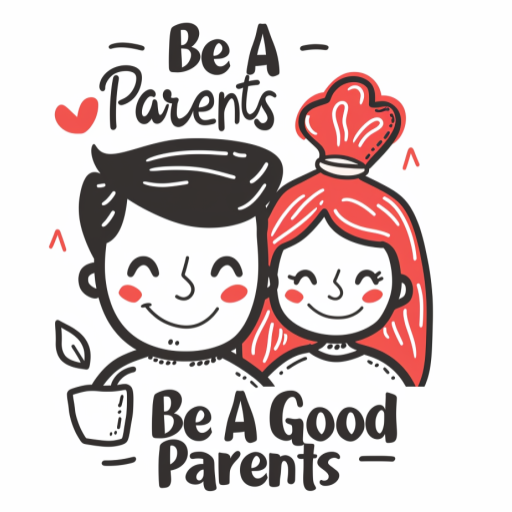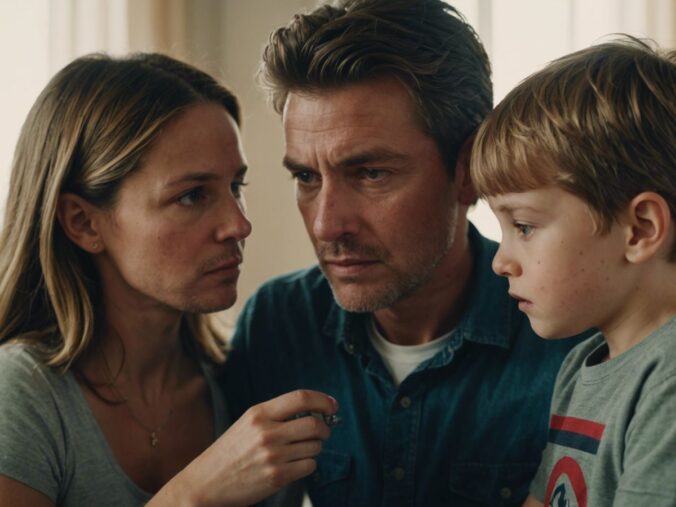Parenting isn’t just a job; it’s a lifelong commitment. And when you’re caught up in the day-in, day-out adventures of raising kids for around two decades, it’s easy to fall into habitual behavior. Unfortunately, some of those habits are counterproductive. In this article, we’ll explore various bad parenting habits, their impacts, and how to recognize and avoid them.
Key Takeaways
- Recognizing common parenting mistakes early can help in addressing them before they become major issues.
- Emotional and physical neglect are serious signs of bad parenting that need immediate attention.
- Over-criticism and inconsistent discipline can lead to long-term behavioral issues in children.
- Positive reinforcement and consistent parenting are crucial for healthy child development.
- Balancing discipline with affection and effective communication helps in building a supportive environment for children.
Understanding the Impact of Bad Parenting

Emotional Consequences for Children
Bad parenting can cast a long shadow over a child’s emotional and psychological well-being. Children raised in an environment marked by neglect, excessive unpredictability, or abuse may grapple with issues such as low self-confidence, anxiety, depression, and trust issues. The emotional scars inflicted during childhood can linger into adulthood, affecting relationships, decision-making, and overall mental health.
Long-term Behavioral Issues
Children without positive parenting are more at risk for their own relationship troubles, depression, anxiety, and aggression, among other negative outcomes. The effects of bad parenting are profound and manyfold. Research shows that the role of parents in shaping the future of their children is undeniably crucial. If the parenting style the adult chooses is detrimental to the child’s development, the child may suffer lifelong implications.
Breaking the Cycle
Breaking the cycle of bad parenting requires conscious effort and commitment. Parents need to recognize and address their negative behaviors to prevent passing them on to the next generation. This involves self-reflection, seeking professional help if necessary, and building positive habits. By doing so, parents can create a healthier environment for their children, fostering better emotional and psychological development.
As the primary architects of a child’s early experiences, parents wield immense influence over their children’s development and future well-being.
Common Bad Parenting Habits
Over-criticism and Its Effects
Over-criticism can severely impact a child’s self-esteem and confidence. Constantly pointing out flaws without acknowledging achievements can lead to feelings of inadequacy. It’s essential to balance criticism with praise to foster a healthy self-image.
Neglecting Emotional Needs
Children require emotional support to develop properly. Neglecting their emotional needs can result in long-term issues in their Child behavior and relationships. Simple acts of listening and validating their feelings can make a significant difference.
Inconsistent Discipline
Inconsistent discipline confuses children and makes it difficult for them to understand boundaries. Consistency in rules and consequences helps in shaping better Parenting strategies and ensures that children know what is expected of them.
Parenting isn’t just a job; it’s a lifelong commitment. And when you’re caught up in the day-in, day-out adventures of raising kids, it’s easy to fall into habitual behavior. Unfortunately, some of those habits are counterproductive.
Recognizing Signs of Bad Parenting
Physical and Emotional Neglect
Physical and emotional neglect can have severe consequences on a child’s development. When parents fail to provide the necessary care, love, and attention, children may feel unloved and unimportant. This neglect can manifest in various ways, such as not providing adequate food, shelter, or emotional support.
Over or Under Involvement
Both over-involvement and under-involvement can be detrimental to a child’s well-being. Over-involved parents may smother their children, not allowing them to develop independence. On the other hand, under-involved parents may neglect their child’s needs beyond the basics of shelter, food, and clothing. Striking a balance is crucial for healthy development.
Ignoring Child’s Opinions
Children need to feel heard and valued. When parents consistently ignore their child’s opinions and feelings, it can lead to a sense of worthlessness and frustration. Encouraging open dialogue and considering their viewpoints helps in building a strong, trusting relationship.
Recognizing these signs early can help in addressing and correcting bad parenting habits, ensuring a healthier and happier environment for children.
How to Break Free from Negative Parenting Patterns

Breaking free from negative parenting patterns is a journey that requires dedication and self-awareness. Acknowledging its presence is the first step to taking corrective action. With some hard work and introspection, the effects of negative parenting on kids can begin to become undone.
Self-reflection and Awareness
Self-reflection is crucial in recognizing and understanding your parenting habits. Take time to evaluate your actions and their impact on your child. Journaling can be a helpful tool in this process.
Seeking Professional Help
Consider seeking professional help from a licensed therapist or counselor to address any underlying mental health issues that may be at play. If you’re spiritual, involving your pastor or other clergy in your healing process can also be beneficial.
Building Positive Habits
- Learn about positive parenting and practice, little by little, implementing these concepts.
- Read books, listen to podcasts, and use whatever trusted resources you need to improve your parenting skills and learn about child development.
- Reduce or cut ties with others who encourage or model bad parenting; you’ll need an effective support system to surround and encourage you.
- Consider an accredited and evidence-based parent coaching program to help you learn new parenting skills.
Remember, kids are kids. They’re navigating this unknown — and sometimes scary — world with their parents as their guide.
The Role of Positive Reinforcement
Positive reinforcement is a powerful tool in parenting. It focuses on encouraging good behavior by rewarding positive actions, rather than punishing negative ones. This approach helps children understand what is expected of them and motivates them to continue behaving well.
Encouraging Good Behavior
Positive reinforcement is a type of positive discipline that aims to shape behavior by focusing on the positive while reframing missteps as opportunities for growth. Catching your child being good and rewarding them for that is more effective than trying to buy their way out of bad behavior. This method not only promotes good behavior but also strengthens the parent-child bond.
Building Self-esteem
When children are consistently rewarded for their positive actions, it boosts their self-esteem. They begin to see themselves as capable and valued individuals. This sense of self-worth is crucial for their overall development and helps them navigate challenges with confidence.
Creating a Supportive Environment
A supportive environment is essential for positive reinforcement to be effective. This means setting clear expectations, providing consistent feedback, and celebrating successes, no matter how small. By doing so, parents create a nurturing space where children feel safe and encouraged to grow.
Positive reinforcement is not about bribery; it’s about recognizing and celebrating your child’s efforts and achievements. This approach fosters a positive and loving relationship between parent and child.
Balancing Discipline and Affection
Setting Clear Boundaries
Children look to parents to define what boundaries are and the consequences that can occur if the child crosses the boundaries. Consistently maintaining a balance of discipline and realistic consequences can be very important for childhood development. Households with zero discipline may be setting kids up for failure. Children who do not learn boundaries may be more likely to participate in harmful behaviors and exhibit a lack of self-control.
Showing Unconditional Love
Displaying love and affection means more than just telling your child that you love them. It also comes from supporting and accepting your child, being physically affectionate, and spending quality time together. Affection is a recipe for growth and can go a long way in your child’s development and well-being.
Effective Communication
Remember, kids are kids. They’re navigating this unknown — and sometimes scary — world with their parents as their guide. Mistakes will always be made, but it’s important to set your child’s behavior apart from the child themself. Listening to their thoughts and feelings can help you both move past any bumps in the road.
If you need a moment, try putting them in time out (1 minute for every age they are) and calm down, collecting your thoughts and feelings.
The Importance of Consistency in Parenting
Consistency is a cornerstone of Effective parenting. It provides children with a sense of security and predictability, which is crucial for their emotional and behavioral development. When parents are consistent, children know what to expect, which helps them feel safe and understood.
Establishing Routines
Creating and maintaining daily routines can significantly impact a child’s sense of stability. Simple routines, such as regular meal times and bedtime rituals, help children understand the structure of their day. This predictability can reduce anxiety and promote a sense of normalcy.
Consistent Rules and Expectations
Children thrive when they know the boundaries and what is expected of them. Setting clear rules and consistently enforcing them helps children learn about consequences and accountability. Inconsistent discipline, on the other hand, can lead to confusion and misbehavior.
The Impact on Child Development
Consistency in parenting not only helps in managing day-to-day behavior but also plays a vital role in long-term development. Children raised in a consistent environment are more likely to develop self-discipline, emotional regulation, and social skills. They learn to trust their caregivers and feel more confident in exploring the world around them.
Consistency in parenting is not about rigidity; it’s about creating a reliable and nurturing environment where children can thrive.
By focusing on consistency, parents can better achieve their Parenting goals and foster a positive, supportive atmosphere for their children.
Consistency in parenting is crucial for fostering a stable and nurturing environment for your child. By maintaining consistent rules and expectations, you help your child feel secure and understood. For more insights and practical tips on effective parenting, visit our comprehensive guide on gentle parenting.
Conclusion
Parenting is a journey filled with both joys and challenges, and it’s natural to stumble along the way. Recognizing and avoiding bad parenting habits is a crucial step towards fostering a nurturing and positive environment for your children. By being mindful of your actions and open to change, you can break free from detrimental patterns and set a strong example for your kids. Remember, it’s never too late to make improvements and strive for better parenting. Embrace the journey with love, patience, and a willingness to grow, and you’ll find that both you and your children will thrive.
Frequently Asked Questions
What are the most common bad parenting habits?
Common bad parenting habits include over-criticism, neglecting emotional needs, and inconsistent discipline. These behaviors can lead to emotional and behavioral issues in children.
How can bad parenting affect a child’s emotional well-being?
Bad parenting can result in emotional consequences such as low self-esteem, anxiety, and depression. Children may struggle to form healthy relationships and have difficulty managing their emotions.
What are the signs of bad parenting?
Signs of bad parenting include physical and emotional neglect, over or under involvement in the child’s life, and ignoring the child’s opinions and feelings.
How can parents break free from negative parenting patterns?
Parents can break free from negative parenting patterns by engaging in self-reflection and awareness, seeking professional help, and building positive habits that foster a supportive and nurturing environment.
Why is consistency important in parenting?
Consistency in parenting helps establish routines, set clear rules and expectations, and positively impacts a child’s development. It provides a sense of security and stability for the child.
What role does positive reinforcement play in parenting?
Positive reinforcement encourages good behavior, builds self-esteem, and creates a supportive environment. It helps children feel valued and motivates them to continue exhibiting positive behaviors.


Leave a Reply